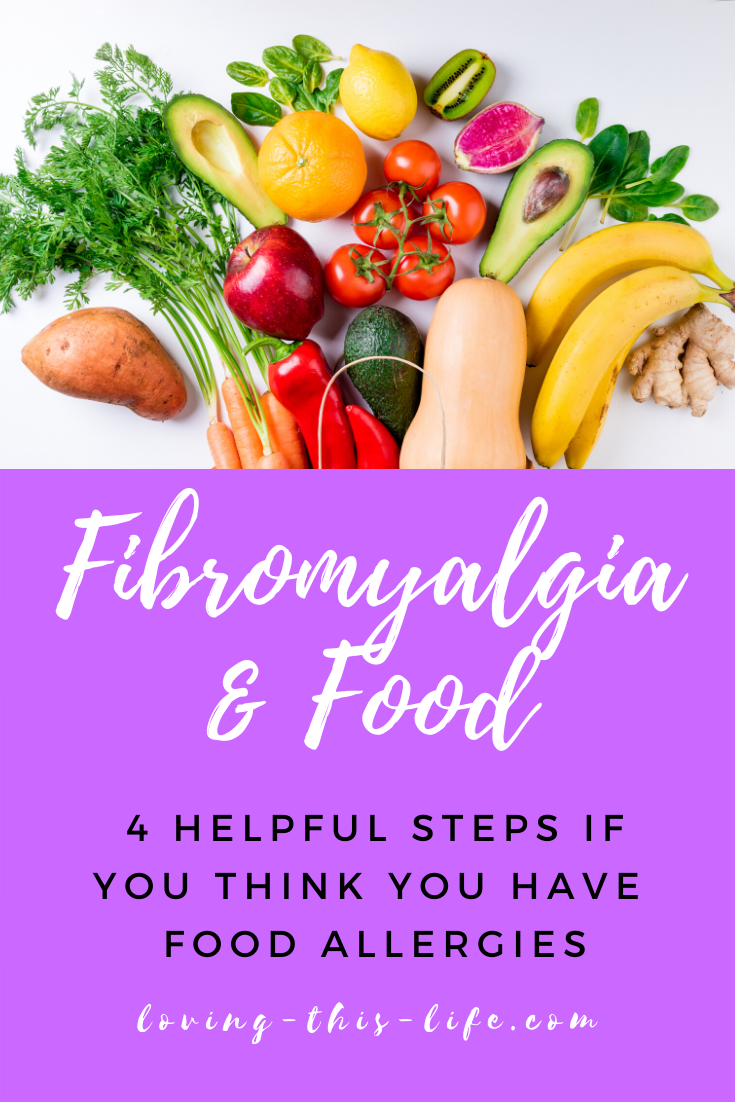Fibromyalgia & Food. I must confess, that this is one blog I didn’t really want to write! Why? Because it’s something I’ve always battled with. I LOVE FOOD and when you love something you don’t generally want to give it up!
But there is another side to the story that tells us that food – the type; quantity and flavour, impacts our bodies and when it comes down to it, we need to work out what helps our bodies and what doesn’t.
My Story:
I developed food allergies in my teens, although I wouldn’t have been surprized if I’d had them before then. I started out with the Skin Prick tests which are still used to work out what allergies you might have.
To start with, they draw lots of dots up your arm and then prick your arm with a drop of the allergen they are testing for. I can remember having at least half a dozen of these at a time. If at the site of the needle prick you come up with a red welt you are showing sensitivity to the allergen. My most sensitive ones were to do with cats, various grasses and dust mite. Not fun – the site becomes red, swells up and can be very itchy!
When I first started out with testing, I discovered early that I had a sensitivity to wheat. So, I started to limit the amount of wheat in my diet. Let me tell you there are a lot more products now that are wheat free, than there were 20+ years ago. The one alternative for bread was to use rye. I did this, until I discovered months later that I had a higher sensitivity to rye than to wheat.
To help you in this process below are 4 things to remember that may help you as you work out what foods affect you:
1. Find out what foods have helpful characteristics in relation to your fibromyalgia / chronic illness. For example, if you live with a lot of pain, what foods have anti-inflammatory characteristics that may help you. For example:
- Berries
- Broccoli
- Avocadoes
- Green tea etc.
I receive daily emails from a fantastic site called Healthline. It looks at everything related food & diet and seems to be up to date with the latest research etc. I encourage you to check out this article on foods with anti-inflammatory benefits and even sign up for their newsletter if you’re interested. Healthline 13 anti-inflammatory foods
2. Do your own Detective work: Take notice of the effect that different foods have on you. This can be tricky as we eat a variety of foods every day. But after a while you get an idea when something is upsetting your stomach, giving you an itchy mouth or causing some other reaction.
- Some people find it helpful to keep a food diary and take note of any symptoms that arise.
- Eliminating foods from your diet for a while can help you to see if the problem goes, or, if it’s still there, it’s time to look at something else.
- Check out your family history. Is there history of food allergies, or sensitivities?

3. Ask for Help: Depending on what your symptoms are and how urgent the situation is for you; it may be time to turn to your Doctor to work out the next steps. (Don’t put off doing this if you have severe reactions to foods, etc. – other things may be happening.) Doctors can do initial blood tests to check for certain allergies, but they may also refer you to a Specialist to get more help.
It’s helpful to give your Doctor as clear a picture as you can of your symptoms, so that they can find the best person to help.
You may also want to ask your Doctor about any natural therapies or people who work in this field that they know has had considerable success. Often Doctors are aware from the results of their other patients as to how much success they have had.
4. Be patient: This can sometimes be a long process and patience is often needed to see it through. Giving up halfway through isn’t a helpful strategy unless you find that something, or someone, is no help at all.
Another thing that I’ve found is that my symptoms can change over time – which adds another challenge to life! What used to be a major problem, doesn’t seem to affect you so much. Or things that you used to eat regularly have started to affect you.
Sometimes, we have just had too much of something and our system says STOP! Enough! After a period of deleting this from your diet, you may well be able to introduce it back slowly without any side-effects. It may be best to do this under medical supervision.
I’m not medically trained, and I can only speak from my own experience. If you have any severe symptoms, then don’t delay – go and see your Doctor to work out what is happening – it may not even be food related.
Developing a good relationship with your Doctor is always helpful and worth putting effort in to.
Putting energy into ensuring that our bodies are receiving the best foods and liquids for optimum health, is something worthy of our time. Keeping up with the latest research is helpful and where I find the Healthline website/emails so helpful.
Ultimately, it’s up to us to care for our bodies. We can reach out to others to help, but we need to allow for the time and resources needed to ensure that we are on top of what our bodies need to function well.

